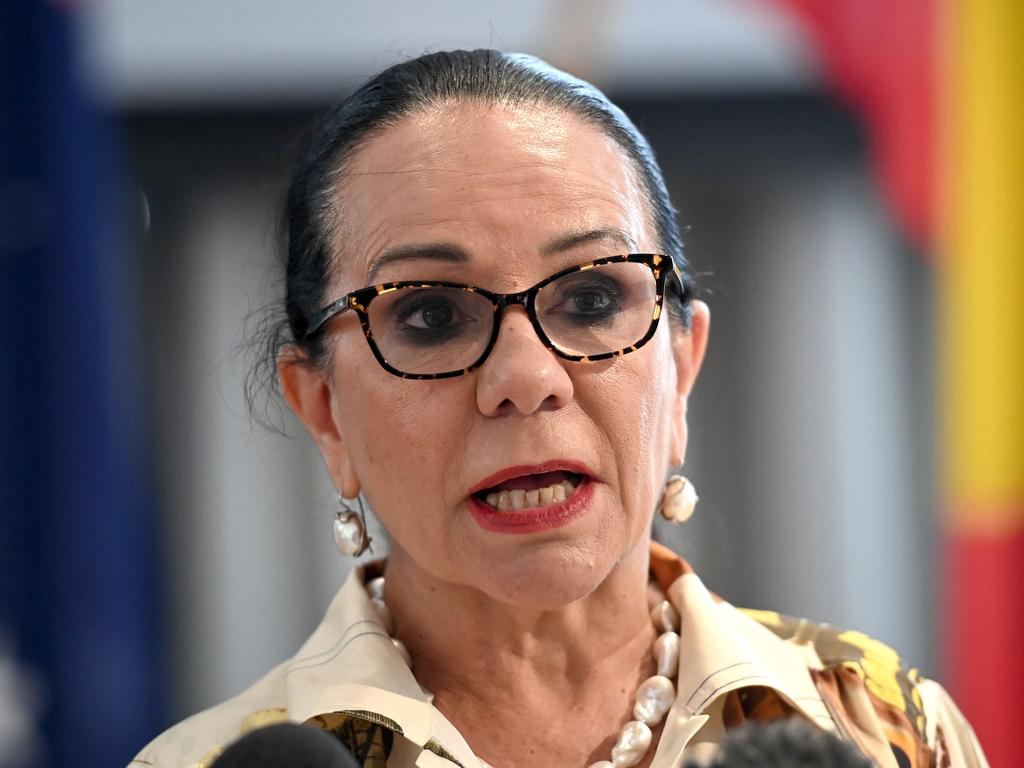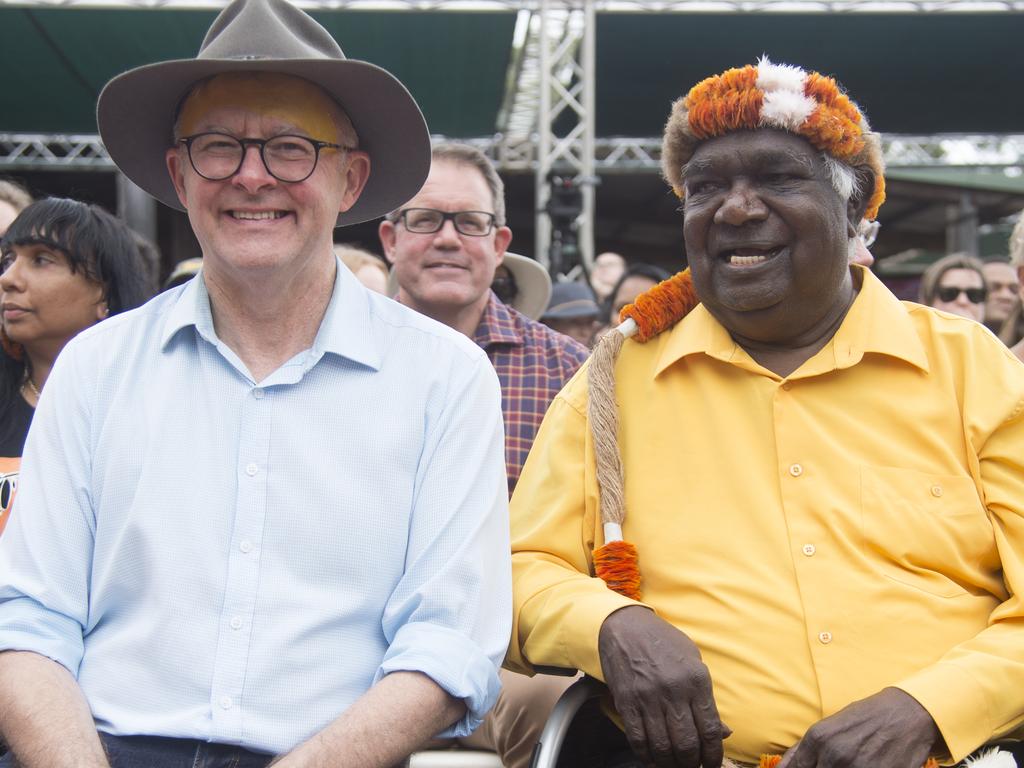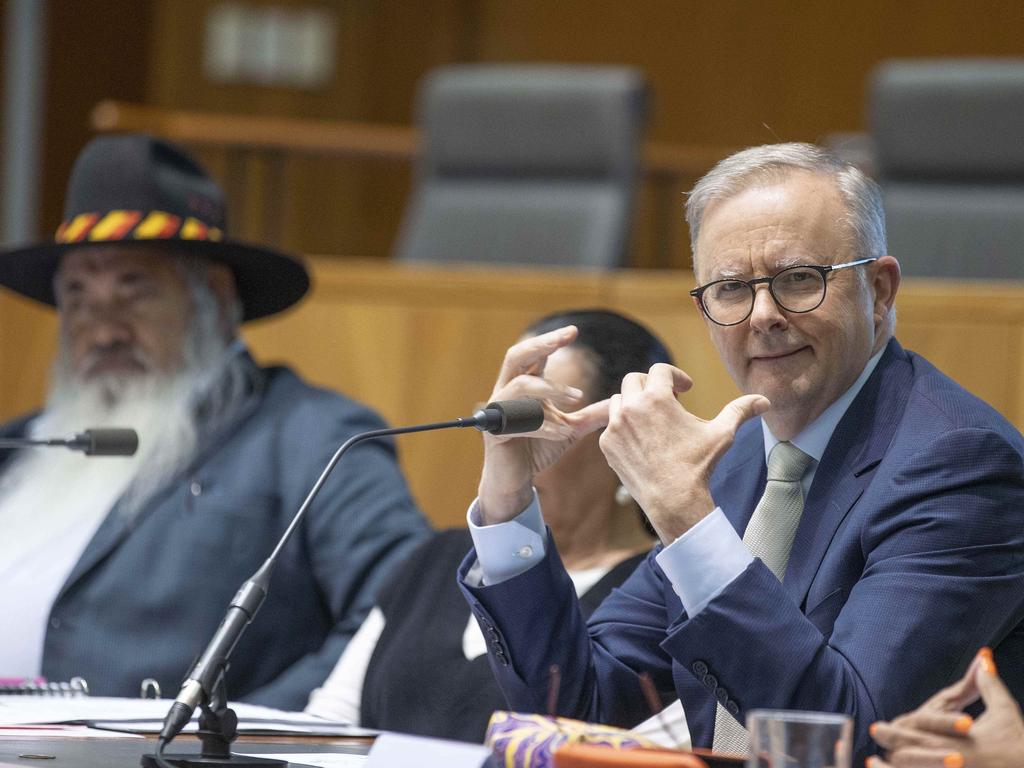Voice Yes campaign assurances are sounding hollow


Aided and abetted, indeed directed, by voice activists, this campaign will try to anaesthetise you with assurances about how user-friendly and moderate the voice will be. And, if you wake up post-referendum minus a constitutional limb or two, metaphorically speaking, it will be too late to complain.
If the government and the activists truly believe the assurances they are so busy making, ’tis but the work of a moment for them to add words to cement these assurances into the words of the Albanese amendment. That might not only allay some of the core fears of many sceptics but would also be a valuable olive branch to those who are concerned about the reach of the voice.
If the government and the activists refuse to build in assurances, that will tell you all you need to know about the value of the assurances now being showered upon us like confetti. Critically, refusing to build in assurances to a constitutionally entrenched Indigenous voice would also suggest we are about to be collectively sucker-punched.
What, then, are these assurances and what words would need to be added to the Albanese amendment to confirm those assurances are genuine?
Chief among the voice anaesthetists is the constitutional expert group, a group of Yes advocates who have been at the forefront of making dubious representations about legal issues surrounding the voice. One of them, law professor George Williams, repeated some of the more critical representations recently.
Just before Christmas, he assured us: “Nor would the wording of the change amount to a de facto veto due to an implied requirement for the voice to be consulted before new laws are made. There is no requirement that the voice be listened to before a decision is made. Decisions can be made without the voice having its say and indeed the voice can be ignored if parliament and the executive decide to do so.”
Fellow academic Shireen Morris and lawyer Mark Leibler – both ardent Yes campaigners – made similar claims in this newspaper before Christmas, pooh-poohing any duty to consult. Did they all get the same memo asking them to, by orchestrated response, discredit the concerns I raised: that a right to make representations gives rise to a corresponding duty to consult, that will likely gum up our system of government with lawfare surrounding a piece of constitutional ransomware?
My view, and that of constitutional silks I have spoken to, remains that same: Yes activists who claim there is no duty to consult a race-based voice are wrong, because this ignores the power of the High Court to draw any necessary inferences from the actual words of the amendment.


If a constitutionally entrenched Indigenous voice “may make representations” about matters, as envisaged in the Albanese amendment, that, by clear implication, gives this new body a right to make representations. And a right accorded to party A is meaningless without there being a duty imposed on party B.
That means that parliament and the executive government will have a duty to give advance notice to this race-based body of relevant proposals. That amounts to a duty to consult. The notion that there is a right without a corresponding duty is nonsense.
Nonetheless, those legal experts who say there is no duty to consult can advise the Albanese government that there is an easy way to settle this. Simply draft the Albanese amendment to make it explicitly clear that parliament and the executive government can, as Williams asserts, ignore the voice with impunity.
The constitutional expert group, and the government, should be happy with this suggestion as it only makes explicit what they say is implicit anyway. Given that the government is also making this express representation to induce us to vote for the Albanese amendment, the Prime Minister should add these clarifying words or else stop making the representation. What is not acceptable is for the government to make a representation to trick us into voting for the Albanese amendment, only for us to find out afterwards the representation was false.
Another dose of constitutional Valium the constitutional expert group dished out was the assertion by Williams that the Albanese amendment does not give any “section of the community special rights”.
Personally, I find this assertion staggering, bordering on ludicrous, but if the constitutional expert group is so convinced it is correct, then this body will have no problem suggesting that we add words to the Albanese amendment to also make this assertion explicit, and put the matter beyond legal doubt.
Again, if this group of Yes advocates, along with the Albanese government, continue to make representations like this to induce us to vote for the Albanese amendment, but are unwilling to make the representations enforceable by entrenching them in the Albanese amendment, we are on notice that we are being set up for a fall.

At least some of these legal experts are slowly moving away from earlier assertions that the voice is non-justiciable. Readers will recall that another dose of anaesthetic was administered by the final report of the co-design working group when it pointed out that its design was predicated on the “need to respect parliamentary sovereignty and avoid causing unintended consequences. As a result, all elements would be non-justiciable, meaning alignment with the standards could not be challenged in court and could not legally affect the validity of legislation or policies”.
We now know, courtesy of former High Court justice Kenneth Hayne – a member of the constitutional expert group – and another former High Court justice, Ian Callinan, among others, that under the Albanese amendment the High Court, not parliament, will be the final decision-maker.
So the representation of non-justiciability is known to be false but, as it is key to the maintenance of parliamentary sovereignty, we should make it true by inserting it into the Albanese amendment.
The net result is that to ensure all the promises that have been made to us to induce us to vote for it remain true, we need to add the following words (or similar) to the Albanese amendment:
“This section (X) does not confer on any section of the Australian community, or any individual member of it, any rights not shared equally with other Australian citizens.
“Further, neither the parliament nor the executive government have any duty to consult the voice, seek representations from it or pay any attention to representations it does make. Parliament and the executive government are free to enact laws or take actions in exactly the same manner and subject to the same substantive and procedural requirements as applied prior to the addition of this section (X). If the purpose, functions, rights, powers, privileges, procedures or any other aspect of the existence of the voice becomes justiciable in any Australian court, the voice is automatically and without need for further action dissolved and this section (X) is likewise automatically repealed without need for further action of any kind.”
Spoiler alert: I predict neither the Albanese government nor the Yes activists will agree to insert words making explicit the highly contestable promises they keep making to us.
Could it be that they know these promises are false but don’t want that to be found out until after the referendum is won?
If the sucker punch arrives, don’t say you were not warned.







Wake up, Australia, you may well be about to be sucker-punched. The Albanese government has announced the campaign for a constitutionally entrenched, race-based voice will ramp up in February with a “week of action”. The government will recruit members of the public to knock on doors and hold barbecues to promote the Yes campaign.